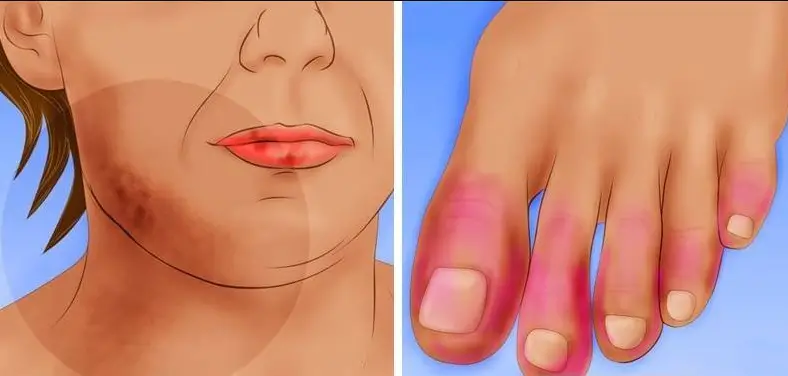Lupus is an autoimmune disease which can affect anyone, regardless of the age. This chronic inflammatory disease develops when your immune system attacks its tissues by mistake as if they were germs or viruses. Lupus is very difficult to be treated since it spreads rapidly throughout your body. In order to treat it on time, you need to be aware of the early symptoms of this disease. The signs and symptoms of lupus differ in each individual, and they may develop suddenly or very slowly. Here are the most common early signs of lupus.
Fatigue
Fatigue is the most common symptom of lupus. If you feel an excessive tiredness, especially during daytime, and if you are incapable of performing your usual daily activities, you should consult your doctor.
Skin Rashes
Skin rashes are the most visible signs of lupus. The most common rash that occurs as a result of this disease is a rash over the bridge of your nose and both of your cheeks in a shape of a butterfly. This rash can appear either suddenly or after an exposure to sunlight. Because most of the lupus patients are very sensitive to the sun, as well as to artificial light, they are likely to experience skin discoloration, especially in their toes and fingers.
Fever
Fever is another early sign of lupus. This sign is usually ignored because the people who suffer from lupus are likely to experience occasional low-grade fever. This may be a sign of infection or inflammation. The lupus patients often deal with an unexplained fever which occurs for no apparent reason. If you have recurrent fevers, you may consider visiting your doctor.
Swollen and Painful Joints
If you suffer from lupus, you are likely to experience pain and stiffness in your joints caused by inflammation. Also, your joints will be visibly swollen, especially in the morning. The pain and the swelling will be initially mild and they will increase gradually.
Hair Loss
Hair loss is one of the first symptoms of lupus. The falling of your hair is caused by inflammation of your scalp and skin. If you are dealing with lupus, the hair loss process will probably occur very slowly. Also, you may notice thinning of your eyelashes, eyebrows, and other hair on your body. As long as you don’t develop lesions on the scalps, your hair will grow back while treating this disease.
Mouth or Nasal Ulcers
Mouth ulcers are another frequently occurring sign of lupus. You can notice whether your mouth ulcer is caused by lupus if it is pain-free. Also, the lupus mouth ulcers most commonly develop on the roof of your mouth, rather than on the sides of your mouth or gums. Lupus can also be responsible for the appearance of ulcers inside your nose.

